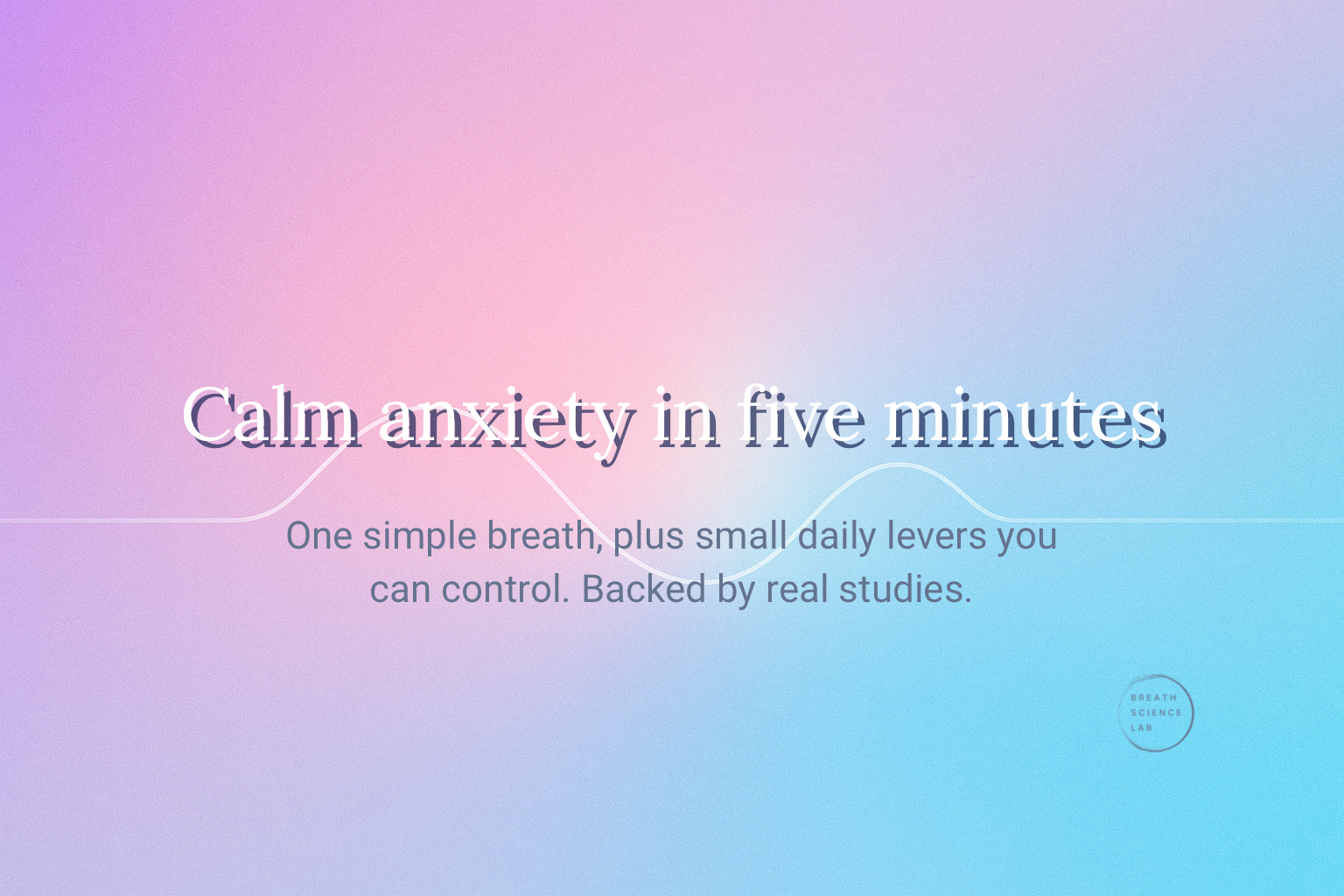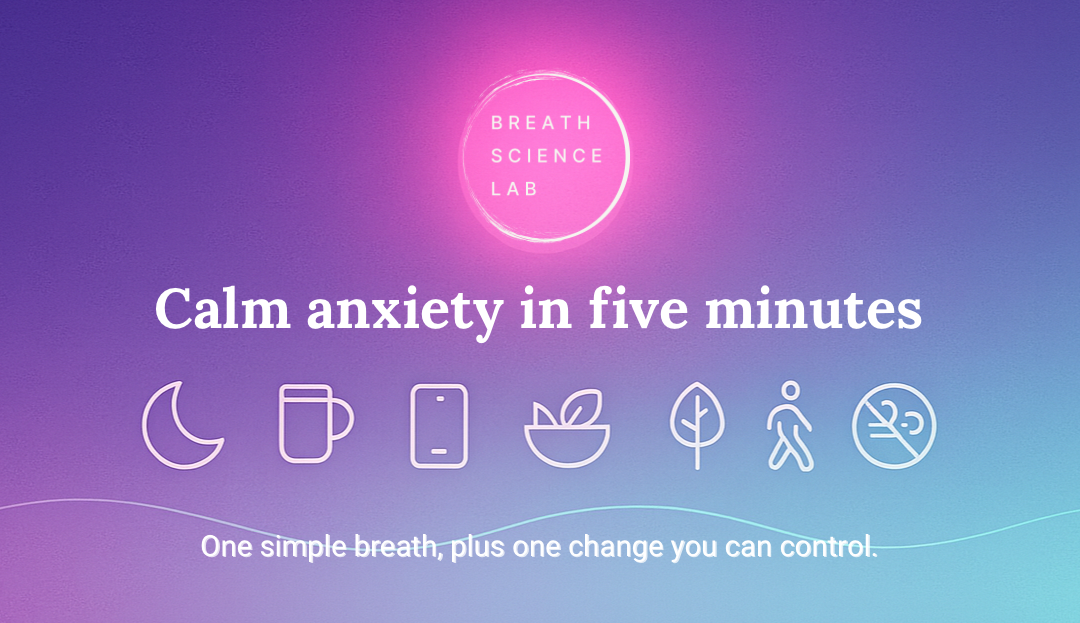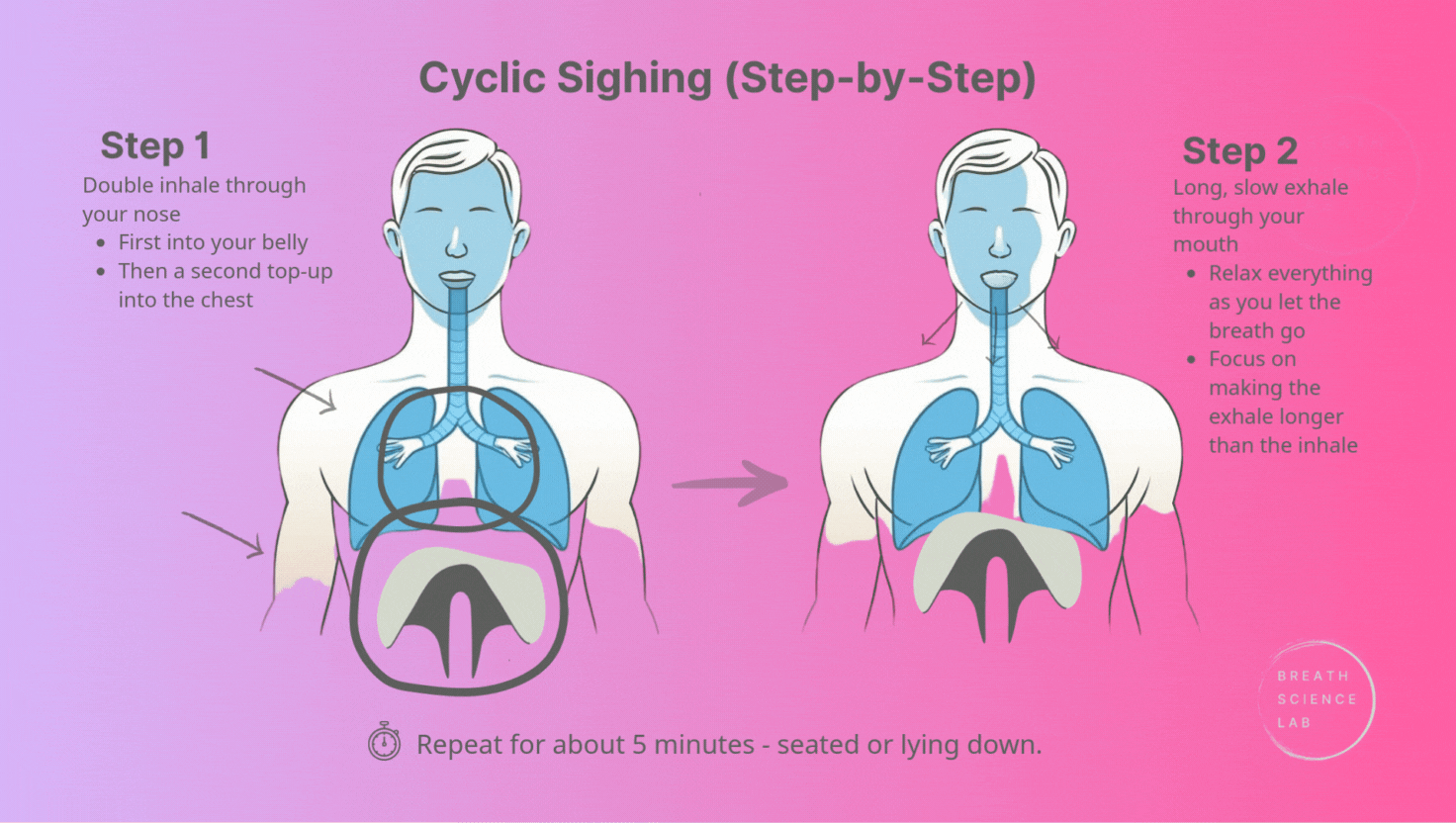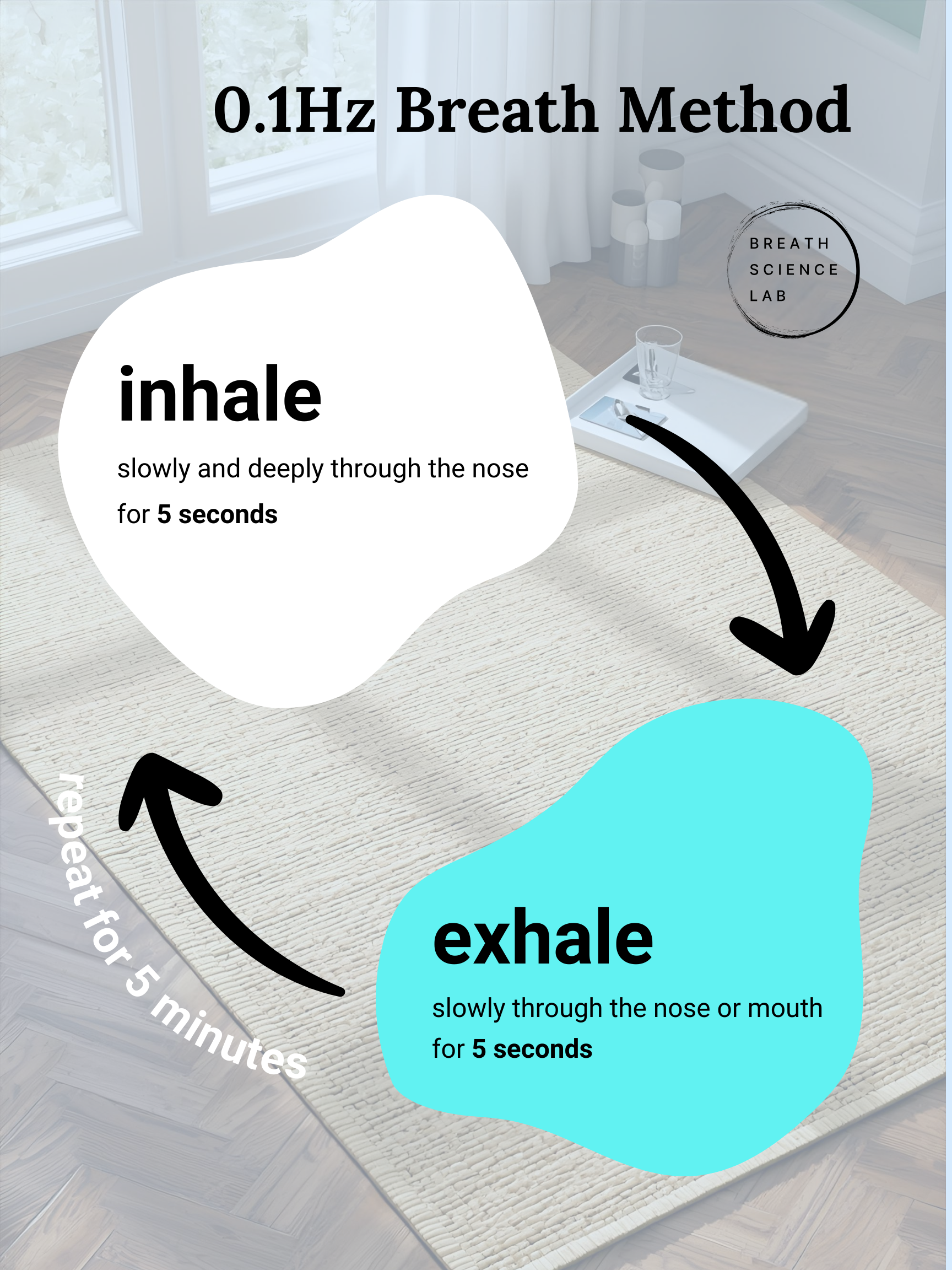The Triggers That Spike Anxiety, and a 5-Minute Breath That Actually Works

You might be familiar with the racing-heart feeling, when your mind accelerates to 100 miles an hour and anything going on around you just seems to disappear. There are certain things that might seem out of our control and change our reality in an instant. Luckily there are things we can do to get back to normal that are simple and quite effective, and they are just a breath away. I’ll explain briefly, then I’ll give you something you can use in the moment.

Sleep loss can be detrimental to how you feel. Even one night of iffy shut-eye makes you more emotionally unstable. I know that when I’m tired, I’m not the most pleasant person to be around. What I’m trying to say is that we should treat sleep as more than rest. It’s an investment in your nervous system.
Caffeine can make you jittery fast. Below 200-300 mg a day (maybe one strong coffee) is ok. Beyond roughly 400 mg (that’s about the third or fourth cup), though, anxiety risk goes up, especially if you are sensitive. So yeah, that extra shot of caffeine you think you need can actually make things worse.
Doom-scrolling isn’t harmless. When checking social media turns compulsive, especially early in the morning, it can switch on your survival mode (aka fight-or-flight) and you’ll be looking out for danger to protect yourself from all day. And guess what? When you look for it, you will find it. The more you find, the more your brain treats it as a confirmation of its presence and will look for even more. It’s like a snowball of negative feedback that builds on itself and can wreck your whole day.
Ultra-processed foods turn good calories into shaky energy. Studies have shown that high intakes of packaged, over-engineered foods are correlated with anxiety and mood problems. Real food, not highly processed, supports steadier mood.
Your location matters. Like it or not, human beings are not designed to live surrounded by concrete. Same goes for noise. If your neighbourhood is noisy and has very little green space you will likely experience more anxiety, especially as you age. You don’t need to move but making a conscious effort to get some quiet time and spending time in nature or just sitting with bare feet on your lawn can be quite therapeutic.
Nicotine, the elephant in the room. There are studies now that show nicotine actually being beneficial for focus in the short term, but delivery methods and dependence carry real risks. These are laced with heavy health-deteriorating chemicals that do more harm than good. Initially a person might feel some calm in the moment. But the keyword here is “moment”. Eventually anxiety comes back harder. It’s a temporary fix that you pay for in the long run.
You don’t have to fix everything. Pick only one. Then add breathwork to your routine. Feeling good is addictive. Who knows, after tackling one of these calm disruptors, you just might want to go after another one.
The 5-Minute Breath That Works In The Moment

Here is what to do if you are feeling anxious now. The best method I found is this one. I use it myself and quite frequently to be honest. It’s called cyclic sighing.
- Inhale through your nose.
- Without exhaling, take a second “top-up” sip of air, into the chest.
- Then exhale slowly, or just let the air leave naturally.
That second inhale followed by the letting go or slow exhale can change your system quickly.
Studies have shown that breathing daily this way, even if it’s just five minutes, uplifts mood and is a reliable way to drop moment-to-moment anxiety. In one randomized trial, it even outperformed mindfulness which was a huge surprise for me as I have been an advocate of mindfulness for years and practiced it regularly. The key difference? The exhale-weighted rhythm. [1]
If this method doesn’t feel right, or if you prefer steady rhythm, try slow breathing at about 0.1 Hz. To put it simply, it means 10-second breaths (5 seconds in, 5 seconds out). Four or five minutes is often enough to calm your nervous system and help you settle. Lab and app studies link this pace with lower anxiety and steadier heart–brain rhythms. [2] For more in-depth information and a breath pacer, go to this post. 👉 Slow breathing walkthrough

Quick CTA
Two minutes and a plan. Try the Breath Match quiz to get your safest starting breath.
👉 Start the quiz
Try This For One Week
Today, pick one thing you can control.
If it’s sleep, Treat it like a ritual. Do the 0.1 Hz breath for 5 minutes already in bed. See what happens. Don’t quit after just one evening. This breath has a cumulative effect.
👉 How to breathe at 0.1 Hz
If it’s caffeine, try limiting yourself to 200-300 milligrams and skip the late cup. If you feel you really need one, try the breath for 5 minutes. See if it helps you fight the craving.
If it’s scrolling, try to hide the app on your phone. I know that on my iPhone I can hide any app. I can still use it by using the search feature, it just takes an extra step to get to it. Believe it or not that one simple trick is sometimes enough to save you from a doom-scroll.
If you live in a loud environment, try earplugs. They will help your brain recover from constantly tuning out the noise. And if possible, do some grounding. Go outside and put your bare feet on the ground, connect. There is emerging evidence showing that grounding can be very therapeutic.
If it’s the ultra-processed food you love, cut back, even if it’s hard. Pick the one food that hits you hardest and work on that. Do the breath when you feel the urge to indulge. This is a tough one, I know. But if you can quit eating one of those poisons, you might feel empowered and you just might feel like you can do even better. I know from experience that small wins are very addictive. Use them to your advantage. And feeling good is addictive as well.
If it’s nicotine, small wins are everything as well. Even a 15-minute delay due to breathwork can have an effect. Trust me, I know. I used to smoke cigarettes and cannabis heavily. I beat them both.
Tomorrow, stick to what you chose yesterday and remember that your breath is your go-to. Do it right before the moment you usually get anxious. And if you feel empowered, add something else. By day seven, look for small changes. A little less compulsiveness perhaps. Maybe a bit less irritated. Or maybe even some space in your thinking. You’re not aiming for perfection. Your goal is consistancy. The better it gets, the better it gets. Think snowball effect.
References
[1] Balban MY, Yamaguchi M, et al. Brief structured respiration practices enhance mood and reduce physiological arousal, randomized controlled trial. Cell Reports Medicine. 2023. https://pubmed.ncbi.nlm.nih.gov/36630953/
[2] Luo Q, Wang J, et al. The effect of slow breathing in regulating anxiety, evidence from EEG and threat uncertainty. Scientific Reports. 2025. https://pmc.ncbi.nlm.nih.gov/articles/PMC11897343/
[3] Lane MM, Davis JA, et al. Ultra processed food exposure and adverse health outcomes, umbrella review of 45 meta analyses. BMJ. 2024. https://www.bmj.com/content/384/bmj-2023-077310

